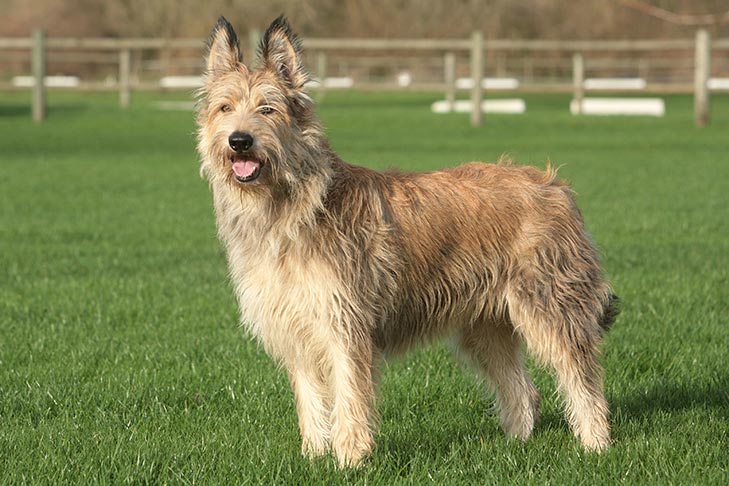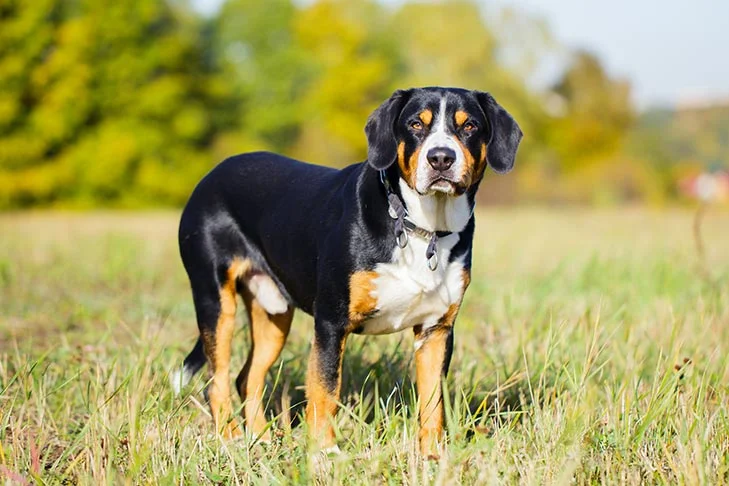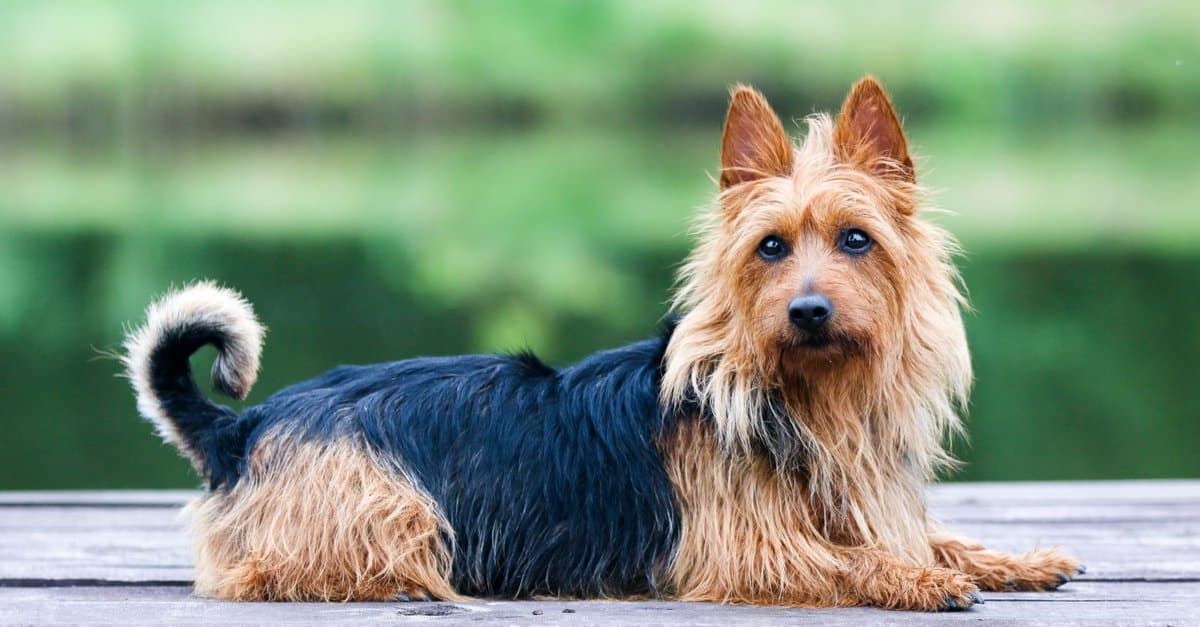Introduction
The Berger Picard is a distinctive and rare breed of dog that originated in France. Also known as the Picardy Shepherd, this breed is known for its shaggy coat, which requires minimal grooming. The Berger Picard is a highly intelligent and active breed that excels in a variety of activities, including agility, obedience, and herding. They are also affectionate and loyal companions that form strong bonds with their families. This breed can be reserved with strangers and requires proper socialization from an early age to prevent shyness or aggression. With the right training, exercise, and socialization, the Berger Picard can make an excellent companion for those who have the time and dedication to meet their unique needs.
Berger Picard Temperament
The Berger Picard breed is known for its unique personality traits, which make it a great companion for the right owner. Here are some of the key personality traits of the Berger Picard breed:
Independent: Berger Picards are known for their independent nature. They are not overly clingy or needy and are happy to spend time alone or with their family.
Intelligent: This breed is highly intelligent and requires mental stimulation and training to prevent boredom and destructive behavior. They are quick learners and enjoy tasks that challenge them.
Active: Berger Picards are a working breed and have a high energy level. They require daily exercise and activities that stimulate both their mind and body.
Loyal: This breed is known for its loyalty and devotion to its family. They are protective of their loved ones and will go to great lengths to keep them safe.
Affectionate: Despite their independent nature, Berger Picards are also affectionate and enjoy spending time with their family. They thrive on attention and love nothing more than cuddling up with their favorite humans.
Overall, the Berger Picard breed is a great choice for an active, experienced owner who can provide them with the mental and physical stimulation they need. They are loyal, affectionate, and intelligent, but require consistent training and socialization to prevent problem behavior.
Aggression
Aggressive behavior in Berger Picard dogs can manifest in various ways, such as growling, biting, snarling, or snapping. This behavior can be triggered by different stimuli, including fear, territoriality, dominance, or lack of socialization.
It is essential to address aggressive behavior in Berger Picard dogs promptly, as it can pose a danger to humans and other animals. Owners should consult with a professional dog trainer or behaviorist to identify the underlying causes of the aggression and implement appropriate training and management strategies.
Health and Lifespan of Berger Picard
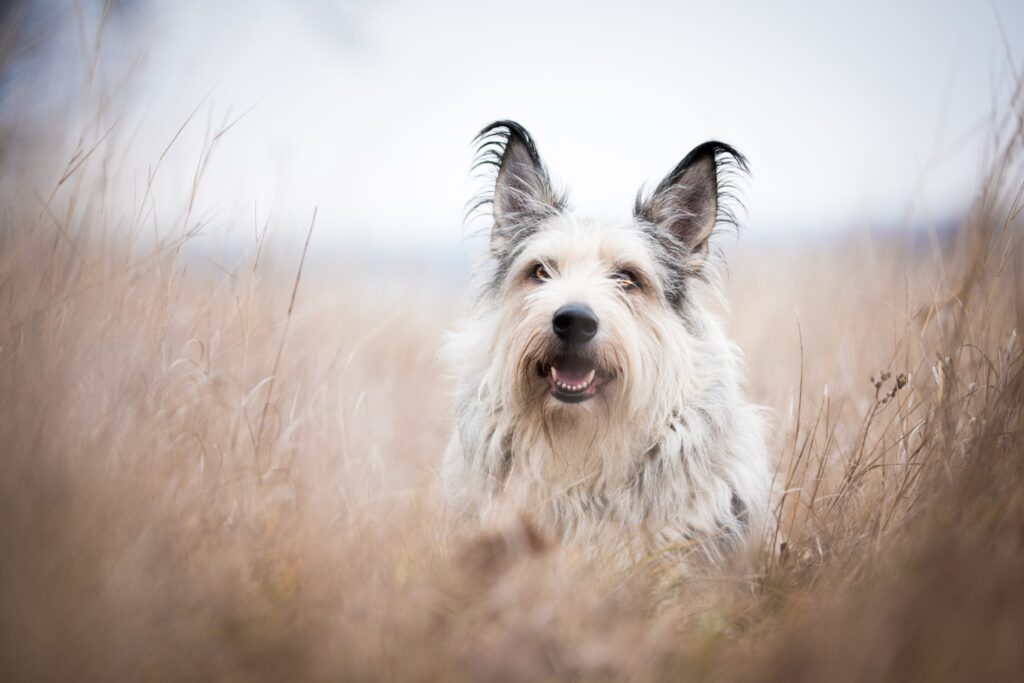
The Berger Picard is a relatively healthy breed with a reported lifespan range of 12-15 years. However, like all breeds, there are certain health conditions that are more common in Berger Picards, such as hip dysplasia and progressive retinal atrophy. Responsible breeders will conduct health screenings on their breeding dogs to minimize the risk of passing on these conditions to their offspring.
Proper diet, exercise, and regular veterinary care can also help to extend the lifespan of a Berger Picard. Owners should provide their dogs with a healthy, balanced diet, plenty of exercise, and routine veterinary check-ups to ensure they stay healthy and happy.
Food
Choosing the best food for your Berger Picard is essential for maintaining their health and well-being. It is recommended to feed your Berger Picard a high-quality, balanced diet that meets their nutritional needs.
Consider selecting a dog food that contains high-quality sources of protein, such as chicken, beef, or fish, and avoid foods with fillers or by-products. Look for dog food brands that are specifically formulated for your dog’s age, activity level, and health status.
Training for Berger Picard
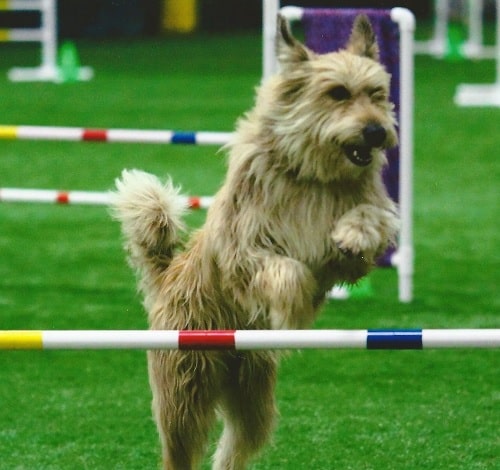
Training a Berger Picard requires consistency, positive reinforcement, and patience. Here are some tips for training your Berger Picard:
Start early: Begin training your Dog when they are young, ideally around 8-10 weeks old. This will help them develop good habits and prevent bad behavior from becoming ingrained.
Use positive reinforcement: Positive reinforcement is the most effective way to train any dog, including a Berger Picard. Use treats, praise, and other rewards to encourage good behavior, and avoid punishment or negative reinforcement.
Be consistent: Consistency is key when training Your dog. Use the same commands, rewards, and training methods every time to avoid confusion and reinforce good habits.
Provide mental stimulation: They are intelligent dogs that require mental stimulation and training to prevent boredom and destructive behavior. Teach them new commands, play games, and give them puzzle toys to challenge their minds.
Socialize your dog: Socialization is important for all dogs, but it’s especially important for a Berger Picard. They can be wary of strangers, so expose them to different people, animals, and environments from a young age to help them feel comfortable and confident.
Seek professional help if necessary: If you’re having difficulty training your dog or if they’re exhibiting problem behavior, consider working with a professional dog trainer who has experience with this breed. They can help you develop a training plan that works for you and your dog.
Remember that training is an ongoing process that requires patience and consistency. With positive reinforcement and lots of love and attention, your Berger Picard can become a well-behaved and obedient companion.
Conclusion
In conclusion, Berger Picards are a unique and intelligent breed of dog with a rich history and a strong work ethic. While they can be prone to certain health issues and may display aggressive behavior if not properly socialized and trained, they can make wonderful and loyal companions with the right care and attention. With their distinct appearance and charming personalities, Berger Picards have captured the hearts of many dog lovers around the world.
